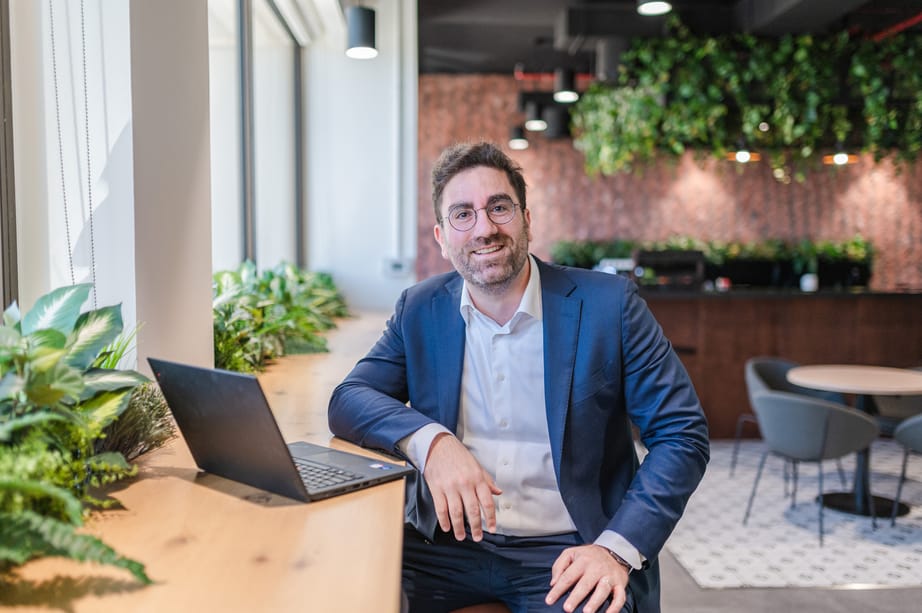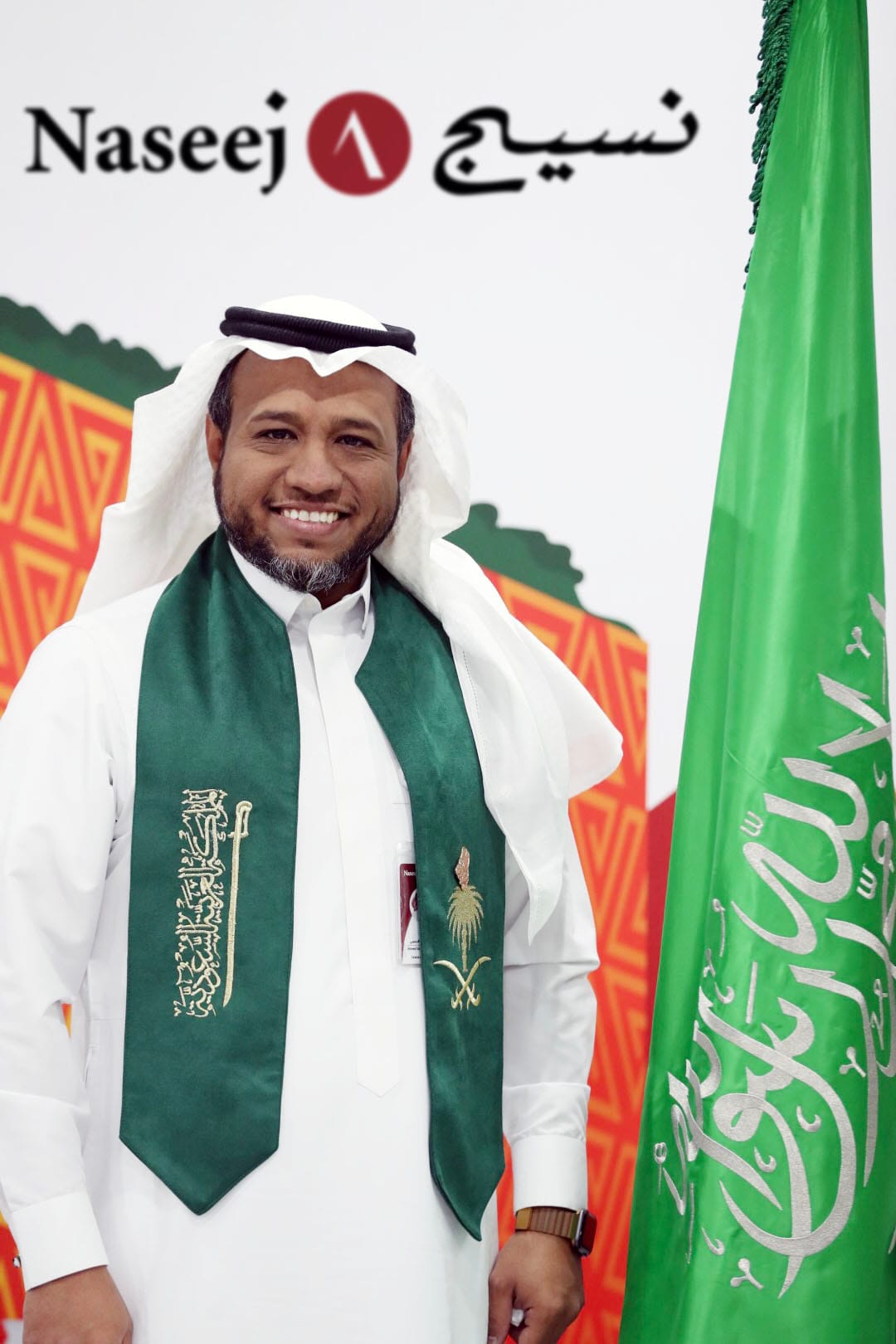
The dawn of a new era
Exploring Saudi Arabia’s ambitious leap into the domain of artificial intelligence By Megha Merani Saudi Arabia is at the

The rise of Arabic-specific AI models in Saudi Arabia is redefining industries with their accessibility and efficiency
While generative artificial intelligence (Gen AI) tools like OpenAI’s ChatGPT and Google’s Bard have become quite prevalent in our world today, it’s safe to say that they have been targeted more toward Englishspeaking or Western audiences. But in a landscape that sees Saudi Arabia pulling out all the stops to establish itself as a hub for innovations in artificial intelligence, it has become imperative to prioritize Arabic localization for GenAI tools, which would make them more accessible to the Kingdom’s citizens – and to the Arab world at large.
Central to this effort – while also advancing the Kingdom’s Vision 2030 goals – are large language models (LLMs) that are reshaping how AI interacts with the Arabic-speaking population. But Arabic localization is more than just a linguistic preference; rather, it is a necessity for maximizing the adoption and impact of generative AI tools in the Middle East. Jad Haddad, Partner and Head of Quotient at Oliver Wyman, emphasized the importance of aligning AI tools with local culture. “Arabic localization is a priority to maximize adoption of Gen AI,” he said. “Embracing the Saudi dialect and ensuring cultural relevance are essential for enhancing the level of engagement between Saudis and GenAI tools.”
Initiatives like the King Salman Global Academy for Arabic Language’s (KSGAAL) Arabic AI Center are thus aiming to develop AI models that understand Arabic dialects, which will contribute to enhancing applications in education and healthcare. As Maha Alsulami, Management and Media Consultant with deep tech company, ADRI, pointed out, such efforts are also vital for ensuring inclusivity and accessibility. “Generative AI is nothing other than an advanced linguistic tool that multiplies the language skills of its adopter,” she pointed out. “Without localizing it in Arabic, we would have millions of Arabic people unable to utilize Gen AI at its potential.”

Cutting-Edge Models
The Oliver Wyman report has noted that the latest state-of-the-art Arabic language model announced by SDAIA – i.e. ALLaM, which is being integrated into IBM’s comprehensive AI and data platform, watsonx– has been trained on more than 500 billion Arabic linguistic units. But it doesn’t stop there – at the time of ALLaM’s announcement in May 2024, the director of the National Information Center at SDAIA, Dr. Esam bin Abdullah Al-Wagait, had said, “We will continue to expand [ALLaM] by adding more highquality data, and working to improve the accuracy of the models trained on it, reaffirming SDAIA’s commitment to making ALLaM the best generative AI model in the Arabic language worldwide.”
Tools like ALLaM allow Arabic-speaking users to better “connect” with AI, and as such, they help bridge the gap between global advancements and local requirements. “SDAIA’s initiatives, such as the Center of Excellence for Generative AI and ALLaM, underscore the importance of localization in driving AI adoption,” noted Ahmed Alhusainy, Medad Cloud Platform Manager and Cybersecurity Manager at Saudi tech trailblazer, Naseej for Technology. “By tailoring AI solutions to the Arabic-speaking population, Saudi Arabia can ensure that generative AI becomes an integral part of its knowledge-based economy. This localization will not only maximize the economic impact of AI, but also position the Kingdom as a leader in Arabic-language AI innovation on the global stage.”
Other models of note include Metabrain, built by Saudi oil giant, Aramco, which has 250 billion parameters (making it the largest industry model in the region), as well as Noon by Naseej. “Among our most significant contributions is Noon, the first Arabic LLM with seven billion parameters,” Alhusainy said. “Launched just four months after ChatGPT, Noon is meticulously trained to capture the nuances of Arabic grammar, syntax, and dialects, offering unprecedented linguistic accuracy and cultural relevance. This pioneering model is enabling innovative applications across industries, marking a transformative step in Arabic AI.”
Oliver Wyman’s Haddad added, “More than seven LLMs have been developed in Saudi Arabia. As the use of these LLMs scale, they will provide a unique and rich experience to users in the Kingdom, while safeguarding data security, LLM sovereignty, and reducing the financial burden on Saudi companies.” Such localization efforts will also assist in the reshaping of sectors like education and healthcare, Haddad pointed out. “Localized AI tools are expected to significantly transform education by enabling personalized learning and creating virtual classrooms,” he said. “In healthcare, they are expected to improve diagnostic accuracy and personalized patient care. Over the long-term, these tools will foster more tailored and patient-centered healthcare services and educational experiences.”
Alhusainy also agreed that localized AI tools will have an impact on several industry sectors across Saudi Arabia. “Beyond education and healthcare, other sectors such as government services, retail, and creative industries stand to benefit from Arabiclocalized AI,” he pointed out. “For example, automation of repetitive tasks and improved decision-making capabilities can enhance efficiency and productivity across industries. Localized AI will also help ensure that technological advancements remain inclusive and culturally aligned, fostering greater adoption and impact across all sectors.”

Economic And Social Impact
According to Haddad, research by Oliver Wyman has revealed that Gen AI localized for Arabic has the potential to contribute SAR90 billion (US$25 billion) to Saudi Arabia’s gross domestic product by 2030. “This impact is largely driven by the adoption of GenAI tools, which, in turn, is driven by the quality of experience,” he explained. “Language localization plays a crucial role in maximizing the economic benefits of AI.”
This focus on Arabic localization aligns seamlessly with Saudi Arabia’s Vision 2030, with ADRI’s Alsulami noting that her enterprise has already seen success in working with governmental authorities towards this goal. “Localization is one of the main pillars of Vision 2030, with a target to reach 56.8% as a share of local content in expenditure in non-oil sectors,” Alsulami said, while also adding that there are huge opportunities for the Kingdom to take the lead in the market with its current priorities and efforts.
Naseej’s Alhusainy also pointed out that the economic potential of Gen AI in Saudi Arabia is projected to surpass SAR4.8 trillion (US$1.28 trillion) in market value by 2032 – but he did note that this will rest heavily on language localization. “Arabic localization ensures that AI tools are accessible and relevant to the Kingdom’s population and industries, enabling them to fully leverage the transformative potential of these technologies,” he said. According to him, the impact of localized AI also extends beyond the economy to everyday life. “Arabic-localized generative AI tools are set to redefine how Saudi citizens interact with technology, making it more accessible, intuitive, and culturally relevant,” Alhusainy said. “These tools will bridge the gap between advanced global AI technologies and the specific needs of Arabic-speaking users, ensuring that technology speaks their language – both literally and figuratively. For everyday life, this means smarter, more personalized digital assistants that understand and communicate in Arabic, even in regional dialects. These tools could help automate tasks, provide seamless translation, and generate tailored content that aligns with local cultural and linguistic preferences.”
So, be it personalized digital assistants that understand regional dialects, to AI-powered platforms like Naseej’s Noon, these innovations are improving accessibility and efficiency. Another example in this regard is Naseej’s ITCAN, an Arabic virtual tutor that is integrated into the company’s Medad Talent Management platform (TMP). “ITCAN provides personalized, interactive learning experiences powered by generative AI, supporting students and professionals with tailored guidance, skill development, and AI-generated educational content,” Alhusainy explained. “This initiative demonstrates our ability to revolutionize education and talent development using generative AI.” In a similar fashion, the company’s Medad Enterprise AI platform empowers organizations with low-code solutions to build AI agents tailored to their needs, that harness enterprise knowledge. “Leveraging advanced techniques such as retrieval-augmented generation (RAG) and LLMdriven reasoning, this platform enables businesses to automate complex tasks, enhance productivity, and optimize decision-making,” Alhusainy shared.
The company has not stopped there though. Naseej has also developed an AI agent for library catalogers, streamlining cataloging tasks with intelligent automation, AI-driven tools for university course evaluation and accreditation, AI-powered exam creation, simplifying the assessment design process for educators, and AI solutions for building individual development plans, offering tailored pathways for professional growth. “These innovations underscore Naseej’s dedication to integrating generative AI into practical applications that address the region’s unique needs,” Alhusainy said. “By delivering solutions that are linguistically and culturally aligned, we are setting new standards for AI adoption in the Arab world and empowering individuals, educational institutions, and organizations to thrive in an AI-driven future.”
Looking To The Future
With the future predicted to be all about AI, Arabic localization in GenAI thus promises to redefine the landscape of technology in the Arab world. “Arabic localization is integral to Saudi Arabia’s vision to become a global AI leader,” Haddad said. “By focusing on developing AI tools that cater specifically to the Arabic-speaking population, Saudi Arabia can position itself uniquely in the AI industry, ensuring that its own populace benefits from the digital transformation, while also potentially setting standards for other Arabic-speaking nations.”
Experts in the field agree, with Alhusainy noting that localized AI tools can help the country achieve Vision 2030’s goals of creating a diversified, knowledgebased economy. “By focusing on Arabic-language AI, the Kingdom ensures inclusivity, enabling a broader segment of society to benefit from AI-driven solutions,” he said. “For example, AI-driven automation of repetitive tasks can improve productivity across sectors, while personalized AI experiences in Arabic can enhance public engagement and satisfaction.”
For her part, Alsulami is looking forward to a future that will have Arabicspeaking users “wowed” by AI’s capabilities – and vice-versa as well. “We will have Arabic models powered by new paradigms in natural language processing and equipped with the miraculous capabilities of the Arabic language,” she predicted. “The Arabic language can resolve most of the current Gen AI drawbacks like ‘hallucinations’ with robust logic and reasoning – so, watch this space!”
Discover the most outstanding articles.اكتشف أبرز المقالات.

Harnessing the power of digital twins to reimagine cities across the KSA and beyond. According to PwC’s 2022 report,

How Riyadh-based The Garage is contributing to a flourishing startup culture in Saudi Arabia In the heart of Riyadh, nestled

Saudi astronauts Rayyanah Barnawi and Ali Alqarni make history in giant leap for the kingdom. From earthbound dreamers to cosmic